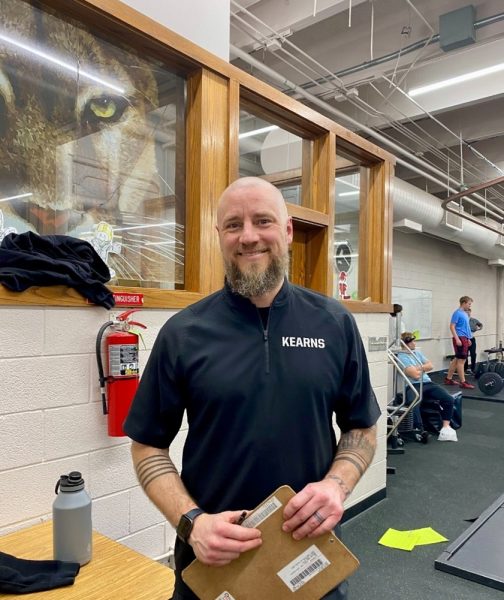Selfie Culture: Self-love or Self-Obsession?
December 10, 2015
Click. At this moment, countless teens and millennials alike pucker their lips, wink an eye, or raise an ironic peace sign and snap a picture that will take mere seconds to appear in their friends’ Instagram and Snapchat feeds. Flashback to one hundred years ago, when only the rich and elite could pay a fortune and hours of time for themselves to be captured in paint. But here in the twenty-first century, self-love is only a front-facing camera away — or is it self-obsession?
As the selfie rose to popularity over the last decade, questions of its effect on society has been raised with it. Many people claim this generation’s knack for taking pictures of themselves and posting them online is evidence of self-obsession. Others call it self-love, arguing that teenagers have learned to embrace their physical flaws and love their bodies as they are.
Chloe Vandiver, a sophomore and occasional selfie-taker, stands at a neutral point on this issue. “I believe [selfie culture] is both a mark of self-love and self-obsession,” she said. “On one hand, it helps you to feel beautiful in the moment of taking a selfie. On the other, the fact that people believe a good selfie defines your beauty or popularity is a problem.”
The apparent need to possess these traits through self-taking — popularity and beauty — is, in Amanda Hurd’s opinion, problematic. “There are body image issues for teenage girls and safety issues for everybody,” the AVID, debate, and ninth-grade English teacher said. “The pictures are going online for everyone to see.”
Hurd also recalled memories of her childhood, a time when pictures were difficult to come by because both cameras and film were expensive and not as commonplace as they are now. “When I was growing up, pictures were made to create memories, to document days and events in your life. I do admit I think the easy access has devalued the picture as a medium. What was the point of a picture of yourself? That would be a waste of good film. Now I see kids taking pics incessantly through their day. Is that bad? Who knows, it’s just a different experience. Pictures today are daily and disposable. What memory is documented just taking picture after picture of yourself? Me eating an apple? Me on the couch? Who cares.”
The use of pictures solely for documentation of memories has passed, as is evidenced by built-in cameras in cellphones, laptops, tablets, and music players. But whether this technology is being put to good use — particularly for selfies — is for the person who takes the picture to decide.
But only after it uploads to Instagram, of course.











Cosette • Dec 18, 2015 at 10:48 am
This is a really good story. I like that it talks about things that teens are actually interested in.